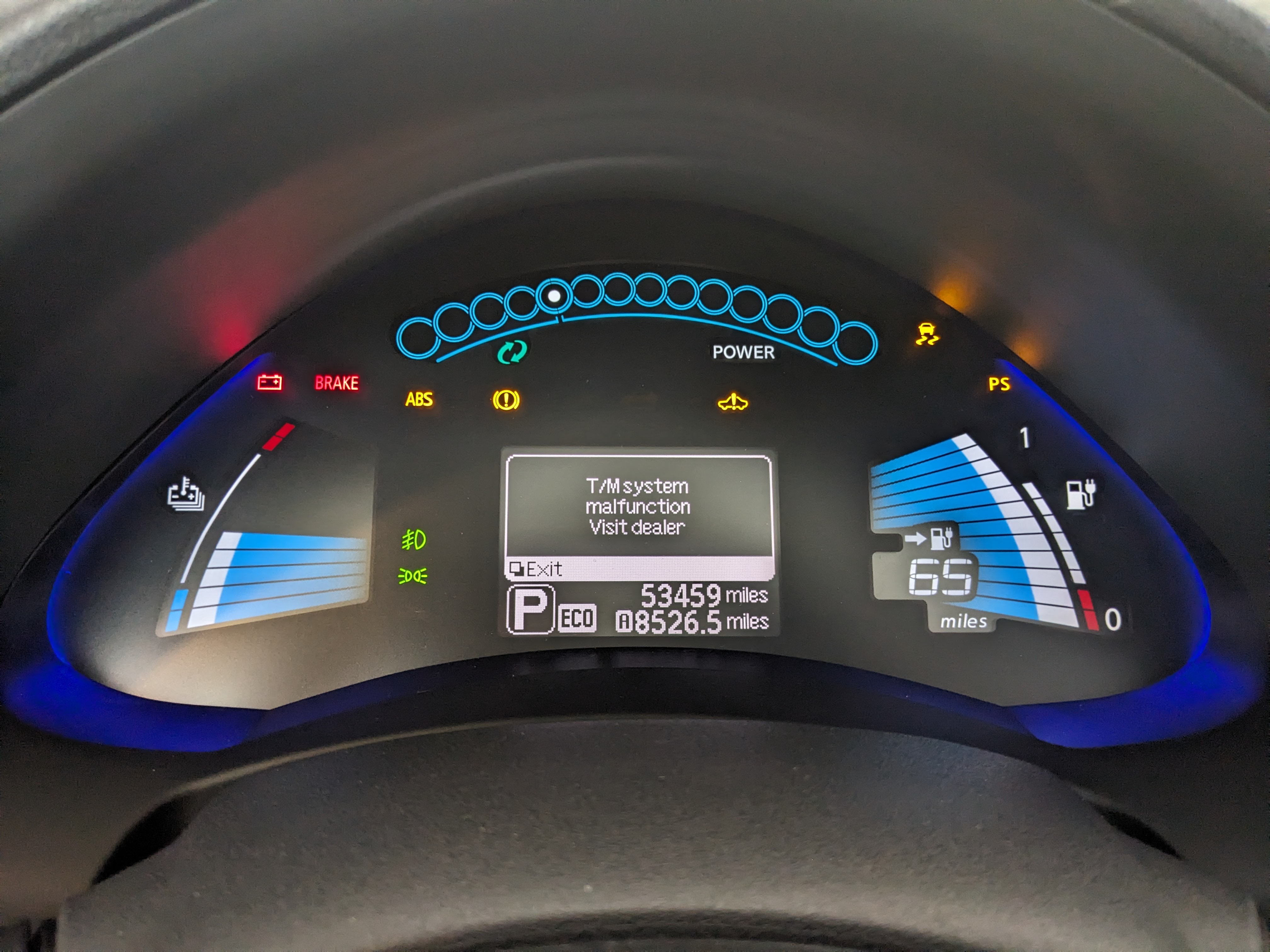Nissan Leaf after 7 years (1)
Published:
In 2016, I purchased a Nissan Leaf. Given the technological progress in electric vehicles, it’s almost a joke now, but it had a 30kWh battery with around 110 miles of range. Including everything (tax, registration, etc.), it cost 42,647 dollars. My employer subsidized $10,000, and I received a $7,500 federal tax credit, so at that time, I thought it was not a bad deal. 110 miles of range seemed enough for daily chores, and for road trips, we had been renting a gas-powered vehicle. This was our only vehicle in the household until 2020, when we bought a Tesla Model Y.
Over the years, the Nissan Leaf’s battery has been depreciating, and these days the range is around 65-70 miles, as shown in the picture.

The Nissan Leaf came with an 8-year/100,000-mile battery warranty, meaning that if the battery gauge dropped by 4 bars, the battery would be replaced. That point came in December 2022, which is about 6 years after purchase. I brought the vehicle for service, and the dealer ordered a new battery. At that point, I was told it would take about 20 weeks (4-5 months) for the battery to arrive from Japan.
As Hiro said in the Thomas the Tank Engine film “Hero of the Rails”, I waited, waited, but the parts never came. It has already been 8 months since the battery was ordered, but I am still waiting. I think a problem with Nissan, or pretty much any legacy automaker, is that the manufacturer (Nissan) and the dealer (Mossy Nissan) are separate business entities, and responsibilities are ambiguous. I suppose they are both interested in selling cars, but not much interested in honoring the warranty. Consumers may get a false sense of safety from hearing that the battery is covered for 8 years, but obviously, Nissan doesn’t promise to replace the battery within a day, a week, or 4 months. Perhaps it will take 10 years. Maybe they are delaying on purpose to save money. But by doing so, they have just lost another customer.
With the kids’ schools, after-school activities, and all the family playing tennis (sometimes twice a day), the range anxiety with the Nissan Leaf has become too painful, so I have just bought my second Tesla. This time it’s a 2023 Model 3 with a 272-mile range. Including everything, it cost 43,731 dollars. I will get 7,500 federal tax credits, which I think is a pretty good deal. In contrast to my dissatisfaction with Nissan, I am happy with Tesla for now. I have driven my Model Y for over 60,000 miles now, but I haven’t noticed any battery depreciation. The only maintenance costs I paid during the past three years are property taxes, insurance, replacing tires (once), and replacing the cabin air filter (once). No more need to waste a day bringing the car to the dealer for maintenance and listening to sales pitches.
Until the battery arrives, the Nissan Leaf will stay in the garage. When my son gets his driver’s licence in a few months, it may be just enough to commute to school, regardless of whether the battery arrives.
